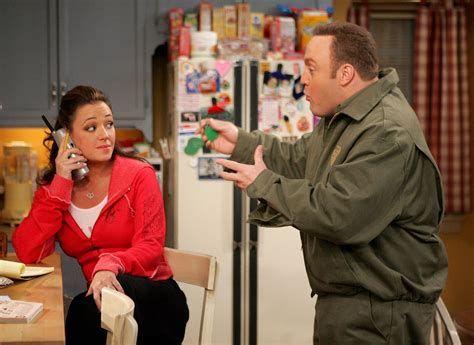
Natalie Joy, wife of former “Bachelor” star Nick Viall, publicly confronted a fellow airplane passenger who was allegedly texting negatively about her husband, sharing the incident on social media and sparking debate about privacy and public figures.
Natalie Joy, married to former “Bachelor” Nick Viall, recently took to social media to share an incident that occurred on a flight. According to Joy, she overheard a fellow passenger texting disparaging remarks about Viall. In response, Joy decided to confront the individual directly, a move that has ignited discussions about privacy, respect, and the challenges faced by public figures and their families. The incident underscores the increasing intersection of public and private lives in the age of social media and reality television fame.
Joy detailed the event in a series of posts on her Instagram Stories. While the specifics of the texts remain undisclosed, Joy implied they were critical of Viall. Her decision to address the passenger directly, rather than ignore the situation, reflects a protective stance towards her husband and a willingness to confront negativity head-on. This incident has sparked a wide range of reactions online, with some supporting Joy’s actions as a defense of her family and others questioning the appropriateness of confronting a stranger in a public setting.
The confrontation reportedly took place mid-flight. Joy, who was seated near the passenger, noticed the texts and decided to address the situation upon landing. The details of the conversation remain private, but Joy’s social media posts conveyed a sense of frustration and disappointment. She emphasized that while public figures often face criticism, there is a line when it comes to personal attacks, especially when they are made within earshot of their family.
This event highlights the unique pressures and challenges faced by individuals who gain fame through reality television or other public platforms. While public figures are often subject to scrutiny and criticism, their families are frequently drawn into the spotlight as well. The incident raises questions about the extent to which public figures and their families are entitled to privacy and whether there is a responsibility for individuals to be mindful of their comments, even in seemingly private communications.
The online response to Joy’s actions has been varied. Some social media users have applauded her for standing up for her husband and confronting negativity directly. They argue that public figures are still entitled to respect and that it is unacceptable to make disparaging comments about them, especially within earshot of their family. Others have questioned whether Joy’s response was an overreaction, suggesting that ignoring the texts would have been a more appropriate course of action. Some have also raised concerns about privacy, arguing that individuals should be able to communicate freely without fear of being overheard and confronted.
The incident also raises broader questions about the nature of public discourse in the age of social media. The ease with which individuals can share their opinions online has led to an increase in negativity and personal attacks. Public figures, in particular, are often targeted with hateful or critical comments. This incident serves as a reminder of the human cost of online negativity and the importance of promoting respectful and constructive dialogue.
The context of Nick Viall’s public persona is also relevant to understanding this incident. Viall gained fame through his appearances on “The Bachelor” and “The Bachelorette,” where his actions and relationships were heavily scrutinized by the public. He has since leveraged his reality television fame into a successful career as a podcast host, author, and entrepreneur. However, his public profile also makes him a target for criticism and scrutiny. His relationship with Natalie Joy has also been a subject of public interest, and the couple has often shared details of their lives on social media.
The incident also sheds light on the evolving dynamics of privacy in the digital age. With the increasing use of smartphones and social media, it has become more difficult to maintain privacy in public spaces. Individuals are often unaware of who might be listening to their conversations or reading their messages. This incident serves as a reminder that even in public settings, individuals should be mindful of their communications and the potential impact they may have on others.
In the wake of this incident, there has been renewed discussion about the responsibilities of public figures and their families in managing their public image. Some argue that public figures should be prepared to accept criticism as part of their job and that they should avoid engaging with negativity. Others argue that public figures have a right to defend themselves and their families from personal attacks. Ultimately, the appropriate response to criticism is a matter of personal choice. However, this incident serves as a reminder that public figures and their families are human beings with feelings and that they deserve to be treated with respect.
The event has also prompted discussions about the role of social media in shaping public perceptions of celebrities and public figures. Social media platforms provide a direct line of communication between public figures and their fans, but they also provide a platform for criticism and negativity. Public figures must carefully manage their social media presence to avoid fueling controversies and to protect their privacy. This incident serves as a reminder of the challenges and opportunities that social media presents for public figures.
The long-term impact of this incident remains to be seen. It is possible that it will lead to a greater awareness of the importance of respecting the privacy of public figures and their families. It may also prompt individuals to be more mindful of their comments, even in seemingly private communications. Ultimately, the incident serves as a reminder that public figures are human beings with feelings and that they deserve to be treated with respect. The discussion surrounding the incident underscores the complexities of fame, privacy, and public discourse in the digital age. It highlights the challenges faced by public figures and their families in navigating the constant scrutiny of the public eye and the importance of fostering a culture of respect and empathy online and in real life.
The confrontation on the plane also brought to the forefront the issue of boundaries between public and private life. While celebrities and public figures often choose to share aspects of their lives with the public, there is an expectation that certain boundaries will be respected. In this case, the passenger’s decision to text disparaging remarks about Viall within earshot of his wife crossed a line, according to Joy. Her response was a defense of her husband’s character and a statement that even public figures deserve a basic level of respect.
Further, the incident has opened up a broader conversation about the impact of reality television on the lives of its participants. Reality TV often portrays individuals in a way that is designed to create drama and conflict. This can lead to negative public perceptions and even harassment. The incident involving Joy and the fellow passenger is a reminder that the people on these shows are real human beings with families and feelings. It underscores the need for viewers to be mindful of the impact their words and actions can have on the lives of those in the public eye.
The event also highlights the power of social media to amplify personal experiences. Joy’s decision to share the incident on Instagram allowed her to reach a large audience and to control the narrative surrounding the event. While this can be a powerful tool for public figures, it also carries risks. Social media can be a breeding ground for negativity and can amplify even minor incidents into major controversies.
In conclusion, the incident involving Natalie Joy and the fellow airplane passenger is a complex and multifaceted event that raises important questions about privacy, respect, and the challenges faced by public figures and their families. It serves as a reminder that even in the age of social media, there is a need for empathy, understanding, and respect for others, regardless of their public profile.
Expanded Context and Background Information:
Nick Viall’s journey to fame began with his appearances on “The Bachelorette” (twice) and “Bachelor in Paradise” before eventually becoming the lead on “The Bachelor” in 2017. His time on these shows was marked by both admiration and controversy, as his actions and decisions were dissected and debated by viewers. Since his time on reality television, Viall has successfully transitioned into other ventures, including hosting “The Viall Files,” a popular podcast that covers relationships, pop culture, and current events. He has also authored a book, “Don’t Text Your Ex Happy Birthday,” and launched a line of essential oils.
Natalie Joy is a surgical technologist and social media influencer. She and Viall began dating in 2020 and announced their engagement in January 2023. They were married in April 2024. Joy has a significant following on social media, where she shares aspects of her life, including her relationship with Viall.
The couple’s relationship has been a frequent topic of discussion online, with many fans expressing support for their union. However, like any public relationship, they have also faced criticism and negativity. The recent incident on the airplane is just one example of the challenges they face as a couple in the public eye.
The broader context of reality television and celebrity culture also plays a role in understanding this incident. Reality TV has become a major force in the entertainment industry, creating stars overnight and providing viewers with a seemingly intimate glimpse into their lives. However, the reality portrayed on these shows is often highly edited and manipulated, leading to distorted perceptions of the individuals involved.
Celebrities, in general, are often subject to intense scrutiny and criticism, with their every move being analyzed and judged by the public. Social media has amplified this phenomenon, providing a direct line of communication between celebrities and their fans, but also creating a platform for negativity and harassment.
The incident involving Joy and the fellow airplane passenger is a microcosm of these broader trends. It highlights the challenges faced by public figures in maintaining their privacy and protecting themselves from negativity, while also underscoring the importance of empathy and respect in online and offline interactions.
The aftermath of the incident also underscores the complexities of navigating the digital age. The ease with which individuals can share their opinions online has created a culture of instant judgment and criticism. Public figures, in particular, are often subjected to a barrage of negative comments and personal attacks.
In this environment, it can be difficult for public figures to know how to respond to criticism. Some choose to ignore it, while others choose to engage directly. Joy’s decision to confront the fellow passenger reflects a desire to stand up for her husband and to defend him against what she perceived as unfair and disrespectful treatment.
However, her actions also sparked a debate about the appropriateness of confronting strangers in public settings. Some argued that she had a right to defend her husband, while others argued that she should have ignored the incident and avoided escalating the situation.
Ultimately, there is no easy answer to the question of how public figures should respond to criticism. Each situation is unique and requires a careful assessment of the potential consequences. However, the incident involving Joy and the fellow airplane passenger serves as a reminder of the importance of empathy, respect, and mindful communication in all interactions, both online and offline.
In-Depth Analysis:
The incident involving Natalie Joy confronting a fellow passenger texting about Nick Viall can be analyzed from several perspectives:
-
Privacy vs. Public Persona: The core of the issue revolves around the tension between the right to privacy and the expectations placed on public figures. While everyone is entitled to a reasonable expectation of privacy, that expectation diminishes somewhat when one enters the public sphere. However, this does not negate the right to basic respect and the avoidance of malicious or harassing behavior. The passenger, while perhaps believing their text conversation was private, was engaging in it within earshot (or sight) of the subject’s wife, blurring the line between private communication and public behavior.
-
Social Media’s Role in Conflict Resolution: Joy’s decision to publicize the incident on social media is a reflection of how individuals, especially those with a platform, now manage conflict. Social media provides a means of immediate response and the potential to shape public opinion. However, it also risks escalation and the loss of control over the narrative. While Joy may have felt justified in sharing her experience, it opened her up to both support and criticism.
-
The Impact of Reality TV Fame: Nick Viall’s fame stems from his appearances on “The Bachelor” franchise. This type of fame is unique in that it’s often based on curated and heavily edited portrayals of individuals. Viewers develop opinions and often feel entitled to comment on the lives of these “reality stars.” This can lead to a sense of dehumanization, where the individuals are seen as characters rather than real people with feelings.
-
The Responsibility of Public Figures: Public figures are often held to a higher standard of behavior. Their actions are scrutinized, and they are expected to be role models. However, they are also human beings who are subject to the same emotions and vulnerabilities as anyone else. Joy’s reaction, while perhaps impulsive, can be seen as a natural response to feeling that her husband was being unfairly attacked.
-
The Boundaries of Free Speech: The incident also touches on the boundaries of free speech. While individuals have the right to express their opinions, that right is not absolute. It does not protect speech that is defamatory, harassing, or incites violence. While the content of the texts is unknown, Joy’s reaction suggests that she felt the passenger’s words crossed a line.
Broader Implications:
- The erosion of privacy: As technology advances and social media becomes more pervasive, the line between public and private life continues to blur. This incident serves as a reminder of the importance of being mindful of one’s actions and words, even in seemingly private settings.
- The impact of online negativity: The incident highlights the prevalence of online negativity and the challenges faced by public figures in dealing with it. It underscores the need for greater empathy and respect in online interactions.
- The evolving role of social media: Social media is increasingly being used as a tool for conflict resolution and public shaming. This raises questions about the ethics of using social media in this way and the potential for unintended consequences.
- The dehumanization of celebrities: The incident is a reminder that celebrities are real people with feelings and that they deserve to be treated with respect. It underscores the need to challenge the tendency to dehumanize public figures and to see them as characters rather than human beings.
The incident involving Natalie Joy and the fellow airplane passenger is a complex and multifaceted event that raises important questions about privacy, respect, the challenges faced by public figures and their families, and the evolving role of social media in shaping public discourse. It serves as a reminder that even in the digital age, there is a need for empathy, understanding, and respect for others, regardless of their public profile.
Frequently Asked Questions (FAQ):
-
What exactly happened on the plane?
- According to Natalie Joy’s social media posts, she overheard a fellow passenger texting disparaging remarks about her husband, Nick Viall, during a flight. She confronted the passenger about the texts after the plane landed. The specific content of the texts has not been publicly revealed.
-
Why did Natalie Joy confront the passenger instead of ignoring it?
- Joy’s decision to confront the passenger appears to stem from a desire to defend her husband and to stand up against what she perceived as unfair and disrespectful treatment. As a protective spouse, she likely felt compelled to address the negativity directly, rather than let it pass unchallenged. The incident highlights the emotional toll that public scrutiny can take on the families of public figures.
-
What was the reaction to Natalie Joy’s actions on social media?
- The reaction to Joy’s actions has been mixed. Some social media users have applauded her for standing up for her husband and confronting negativity directly. Others have questioned whether her response was an overreaction and have raised concerns about privacy and the appropriateness of confronting strangers in public settings.
-
Does Nick Viall have a history of controversy that might explain the passenger’s actions?
- Nick Viall gained fame through his appearances on “The Bachelor” franchise, where his actions and relationships were often scrutinized and debated by viewers. While he has built a successful career since then, his past experiences on reality television may contribute to the public perception of him and make him a target for criticism. This history, however, does not justify disrespectful behavior.
-
What are the broader implications of this incident for public figures and privacy?
- This incident highlights the challenges faced by public figures and their families in navigating the constant scrutiny of the public eye. It raises questions about the boundaries of privacy in the digital age and the responsibility of individuals to be mindful of their comments, even in seemingly private communications. It also underscores the need for greater empathy and respect in online and offline interactions.









